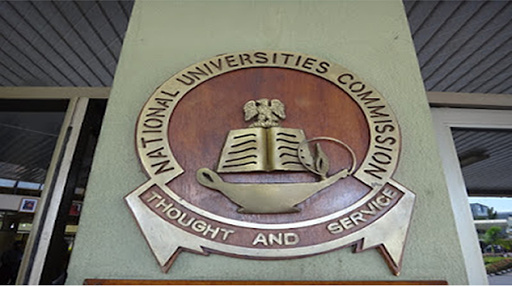
A cautionary and prefatory note is in order: I am not speaking in any official capacity. I am speaking with the assumed authority of a stakeholder—which all academics, active and retired, are; and at that, as one who has actively functioned on both sides of the CCMAS: as a Reviewer for the NUC and as the chair for a university Senate Committee on the CCMAS. I feel compelled to engage in the on-going controversy surrounding the CCMAS.
There has been far more acrimony over the CCMAS than there was over the BMAS—the Benchmark Minimum Academic Standards. For the battle cry from Nigerian universities seems to be: The CCMAS is dead on arrival; long live the BMAS!
This cry has gotten even the more strident since the NUC asked Universities to commence the implementation of the CCMAS at the 100 Level in the 20023-2024 session. Meaning that the pilot programme must have since commenced. However, there is every evidence the instruction is being honoured largely in the breach—and loudly so. ASUU and most, if not all the public Universities, especially the first generation Universities, are resolute in their insistence to be distanced completely from the CCMASS. On the other hand, the private Universities, in some kind of wait-and-see attitude, are pussy-footing in their engagement with the trial run of the programme.
The assault on the CCMAS has been virulent; and, on every occasion, goes viral. The most recent was at the 561 Inaugural Lecture of the University of Ibadan. Reported by the press as: ‘World Bank, IMF Interfering with Nigerian Varsities’ Affairs’, the Lecture was delivered by the LAUTECH Pro-Chancellor and Chair, Governing Council, Prof Ayodeji Omole.
The Lecture launched three broad sides at the CCMAS. (i) It sees the CCMAS as the ‘anti-intellectual policy that is designed to further put the university system under perpetual slavery’. (ii) It argues that the CCMAS’ ‘rigid standardisation will definitely limit the universities’ ability to innovate and design programmes to meet societal needs; because local content and flavour are ignored. It will kill innovation and creativity. We should be talking of quality and excellence, rather than the minimum standard and lowering the overall academic quality, thus killing critical thinking.’ (iii) The insistence that ‘the proposed imposition of the Core Curriculum Academic Standard by the National Universities Commission is another policy that will kill Nigerian universities’. It is on the basis of the foregoing that the Lecture launches the passionate appeal to ‘the Nigerian government and their so-called developing partners [to] allow the University system to breath.’
At various fora, ASUU has been ventilating very much the same misgivings; and the same passionate appeal. The Union has consistently taken umbrage at the NUC’s lack of consultation with universities. To the Union, the CCMAS does not only erode university autonomy; it takes on too much and is much too idealistic to be in any manner profitably achievable or sustainable.
It is not just that the NUC caused the university curriculum into being but at the same time has gone right ahead to publish text books based on the curriculum. Then, of course, there is the issue of the personality of the Repertoire General, Prof Okebukola….
Just how justifiable are these grouses against the CCMAS?
There is absolutely no doubt that in intent and content, the NUC has positioned/structured the CCMASS to be everything the BMAS is not. This comes out strongly in the unique features carefully spelt out in the CCMAS. Each programme is learner-centered; incorporates both employability skills and 21st century skills; demonstrably intersects theory and practice; lays strong emphasis on the acquisition of relevant professional skills and on the use of ICT; and is responsive to the entrepreneurial needs of the student, the society and the global community.
No less significant are the learning outcomes and their systemic connection to course content whose elasticity is dependent on the duration of the semester. In effect, the learning outcomes have been deployed as a veritable checklist.
And this: where the BMAS is 100 per cent NUC-derived, the CCMAS is 70 per cent: thereby, allowing each University to generate the balance of 30 per cent as its own specific contribution to the CCMAS.
It is significant that the NUC has been unequivocal about which agency, the NUC or the University, should generate/own the syllabi it operates. According to the NUC, the 70 per cent: 30 per cent ratio is only for the interim—incrementally, more percentage would be devolved to the Universities to the point of the Universities ultimately owning the entire 100 per cent.
Anyways, the guideline on the optimal/acceptable utilisation of the 30 per cent is as clear as can be. Each University is to utilise the 30 per cent in each of its disciplines to generate courses that individuate it; that give it the character peculiar to it; that give it that stamp that is, in essence, its own very identity or DNA. In practical terms, the University has to relate each of those courses that makes up the complement of 30 per cent to the University’s vision, mission and core values. The intended effect is clear.
Though there are common courses across board, each university is as distinct and as peculiar as it can be. For instance, Mass Communication in Dominican University, Ibadan simply cannot be the same with Mass Communication at the University of Ibadan: the individuating factors are far too intrinsic and systemic to be compromised or breached—or even cross-pollinated.
To be continued tomorrow.
Ekwuazi, is Professor of Broadcasting and Film; taught at the University of Ibadan and Pan-Atlantic University; former Director, National Film Institute; former DG, Nigeria Film Corporation; lately, Ag VC, Dominican University, Ibadan He can be reached via: 0803 634 5055 and hekwuazigmail.com






